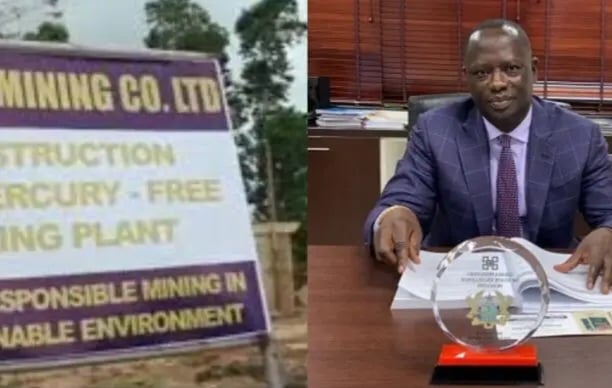I. Breaches and Malfeasance: A Pattern of Regulatory Evasion
Akonta Mining’s lawsuit against the government reflects a broader culture of impunity within Ghana’s mining sector. Despite public outcry over illegal mining, companies with political backing often evade enforcement and manipulate loopholes. This case highlights three major breaches:
Case Study 1: The Tano Nimiri Encroachment
Government officials and environmental groups have produced evidence of illegal mining within the Tano Nimiri Forest Reserve, yet Akonta Mining denies involvement. This mirrors past cases where mining firms used questionable lease interpretations to justify operations in restricted areas.
Expert Analysis:
Dr. Kwame Asiedu, an environmental policy expert, notes:
“The issue is not just about illegal mining but deliberate misrepresentation of land boundaries. Many companies exploit regulatory gaps to argue technicalities while continuing destructive practices.”
Case Study 2: Financing Illegal Mining Networks
Allegations that Akonta Mining sold mining access to third parties and collected royalties suggest financial collusion with illegal operators. This practice, common in galamsey operations, allows companies to launder profits from unauthorized mining while avoiding direct legal repercussions.
Expert Analysis:
Former Minerals Commission official, Dr. Yaw Amponsah, explains:
“This lawsuit is a tactic to distract from illicit financial transactions. The bigger concern is how licensed companies facilitate galamsey under regulatory blind spots.”
II. Policy Implications: Strengthening Regulatory Oversight
To prevent similar incidents, Ghana’s mining governance must evolve. Strategic policy interventions could close existing loopholes:
1. Enforcing Satellite Tracking for Mining Concessions
Adopting satellite-based monitoring would allow real-time tracking of mining activities, ensuring companies operate within approved areas. Countries like Chile and Canada have successfully implemented geospatial tracking to monitor environmental compliance. 2. Revamping Judicial Processes for Mining Violations Current legal proceedings are slow and reactive, often allowing companies to continue mining while cases linger. Ghana needs a specialized legal framework for mining offenses, similar to South Africa’s Environmental Courts, which fast-track violations.
3. Strengthening Transparency in Lease Allocations
Mining lease agreements should be publicly accessible to prevent fraudulent claims like those in Akonta Mining’s defense. Blockchain-based licensing verification could improve accountability, ensuring all contracts are traceable.
III. Governance Challenges: Breaking the Political-Mining Nexus
The Akonta Mining case highlights how business interests exploit weak governance structures. Beyond mining-specific reforms, broader political accountability is necessary:
Case Study 3: Political Shielding and Public Statements
President Akufo-Addo’s public assurance that Akonta Mining was not engaged in illegal mining within forest reserves has sparked controversy. Critics argue that such statements, made without conclusive investigations, risk undermining enforcement efforts and emboldening companies implicated in illegal activities.
Expert Analysis:
Professor Ama Ofori, a governance specialist, argues:
“When political leaders publicly exonerate companies under investigation, it creates a perception of institutional bias. This undermines public trust and weakens the fight against illegal mining.”
Strategic Recommendations for Reform
For lasting impact, Ghana must pursue systemic changes to dismantle illegal mining networks and ensure responsible resource management:
1. Legal Accountability for Corporate Violations
Implement heavier penalties for fraudulent lease claims and unauthorized operations. Establish a public oversight commission to review large-scale mining approvals.
2. Community-Led Environmental Surveillance
Empower local groups with citizen monitoring tools to track mining activities. Mandate mining firms to fund independent environmental audits.
3. Decoupling Political Influence from Natural Resource Management
Strengthen legislative independence to prevent regulatory capture. Enforce conflict-of-interest disclosures for government officials involved in mining policy.
Conclusion: A Defining Moment for Ghana’s Mining Future
Akonta Mining’s lawsuit is not just a legal battle—it is a test of Ghana’s commitment to governance integrity. If allowed to manipulate the system, it will set a precedent for other firms to follow suit. However, if decisively rejected, it signals Ghana’s readiness to assert control over its natural resources.
With stronger policies, judicial efficiency, and community involvement, the mining sector can shift away from corruption and towards **sustainable, accountable resource management**.
Retired Senior Citizen
Teshie-Nungua
[email protected]


